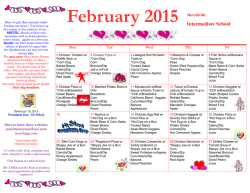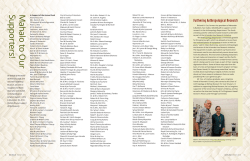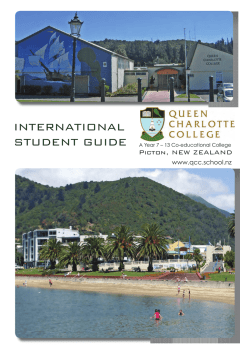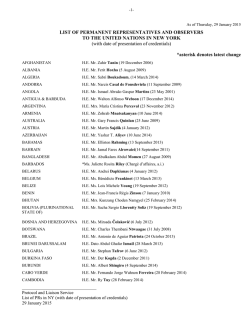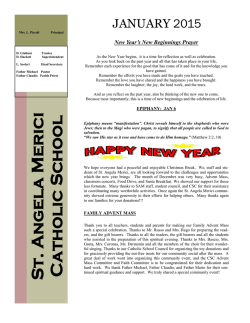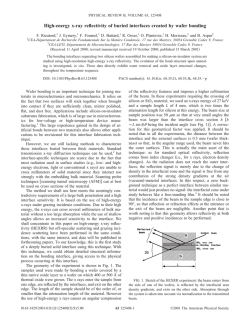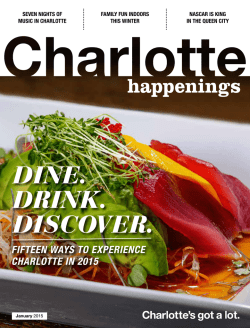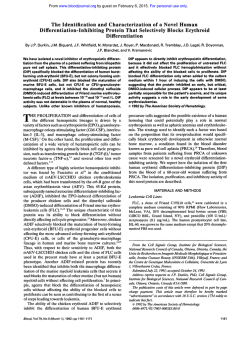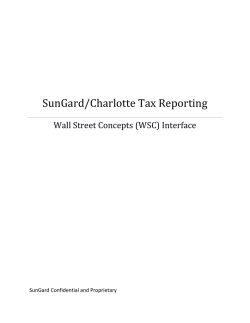
QCC Prospectus - Queen Charlotte College
KIA ORA & Welcome to Queen Charlotte College On behalf of the staff and the students it is my pleasure to welcome you to our school. Queen Charlotte College has many special attributes which make it an ideal environment in which to learn. Our College is well designed and is built in a rural location on the outskirts of the picturesque seaport town of Picton. We offer a variety of curriculum subjects and are especially privileged to operate our own marine farming arm of the school. As a College we celebrate the exciting times we live in as our school roll grows and opportunities for our students grow with that roll. Reputation is an important part of our philosophy and we encourage our students to take pride in themselves and Queen Charlotte College. Our College Crest depicts: Captain James Cook's ship the Endeavour (Captain Cook charted this area on his voyage to New Zealand in 1769), an open book which represents the importance of both reading and learning, the mere which represents the high respect we have for Maori and for their ancestors and, finally, the Southern Cross which symbolises the same original means of navigation utilised by both the Pakeha and the Maori cultures. Our mission statement Maximum achievement through Personal Best while respecting self, others and the environment represents the idea that we must make the most of every opportunity given to us and consistently strive to achieve our potential. Ake Tonu He aha te mea nui. He tangata, he tangata, he tangata What is the greatest thing? It is people, it is people, it is people. Mr Tom Parsons Principal Queen Charlotte College Board of Trustees as at 2013 Mr Trevor Hook Mr Tom Parsons Mrs Kay Riwaka Mr Richard Hill Dani Gibbs/ Manfred James Mr Mark Ivamy Chairperson Principal Minute Secretary Staff Representative Student Representatives Mrs Rochelle Stevenson Mr Peter Payne Mr Jeff Woolf Mrs Katharine Overend Ms Carmen Gimpl Mr Amai Thompson Staff 2013 Mr Tom Parsons, B.Ed., Dip. Ed., Dip.Teaching, psc Mr Alistair Boyce, M.A. (Hons), Dip.Teaching Mrs Betty Whyte, B.Sc., Dip.Teaching Mr Jack Saxon, B.A., Dip. Teaching Mrs Kay Riwaka, T.T.C. Ms Amanda Beddis, MFA (Hons), BFA, Dip. Teaching Ms Fran Beullens, B.A., Dip. Teaching Ms Teresa Besley, B.A. (Hons), History; PGCE ICT & History; HNC – Countryside Management Ms Julie Bousquet, B.P. Canada, Dip. Teaching, Masters Counselling Mrs Megan Bruce, B.A., Dip.Teaching Mrs Emma Chilton, B.Sc. (Hons) Engineering; PGCE Design & Technology Mr David Collins, B.A., Dip. Teaching Mrs Christine Dew, B.A.(Hons)., P.G.C.E. Principal Deputy Principal, Geography Deputy Principal, Physics, Science, Aquaculture Assistant Principal, HOD Social Sciences, History, Classics Executive Officer Visual Art Year 7/8 Homeroom, French, HOD Special Ed. HOD Geography, Social Studies, SCT Guidance Counsellor HOD English, Librarian Hard Materials Technology, Graphics, (Dean Rangatira) HOD Languages, Year 7/8 Homeroom, Japanese HOD Mathematics, Data Manager, TIC Relief, Principal’s Nominee Mr Tony Dixon, B.Sc. . Science, Chemistry Mrs Penny Dollimore, Dip. H.Sc., Dip.Teaching HOD Food and Textile Technology, Health Mrs Carla Gibson, Dip. Teaching Year 7 and 8 Teacher Ms Danielle Heares-Farry, B.Sc. Pharmacology & Genetics Science, Biology, Moodle Mr Richard Hill, B.Ed., Dip. Teaching HOD Outdoor Education, Mathematics, (Dean Tamahine) Miss Rebecca Kane, B.Sc., M.Sc., Dip. Teaching Science, Biology, (Dean Aramoana) Mr Tim McCaffrey, B.Sc. in Industrial Arts Ed. (USA) Hard Material Technology, Graphics, Careers Mrs Bev Maata-Hart, B.A. Special Projects Ms Gillian Miskell, B.Sc., Dip. Teaching Mathematics; Junior Art Mrs Frances Morton, M.Sc. HOD Science, Physics, Biology Ms Karli Murphy, M. Appl. Sci., Dip. Teaching Science, Aquaculture Mr David Nicholson, B.P.E., Dip.Teaching HOD Physical Education, Health Mrs Dianna Nicholson, B.Sc., Dip. Teaching Mathematics Ms Michaela Pluck, B.Ed., Dip. TchgLng PE, TIC Health (LWOP Term 3 and Term 4) Ms Katrina Pollard, B.Ed., Dip. Teaching PE, Health Mrs Louise Rogers, B.A., Dip. Teaching English Ms Paula Usher-Somers, B.A., B.Ed., Dip. Teaching, HOD Visual Art, Systems Administrator; Dip. Computer Graphic Design (USA) TIC Laptops; Computing Mrs Nancy Spatz, M.Sc (Special Education), Specialist Teacher B.A., Dip. Teaching Ms Claire Vining, B.CA, Dip. Teaching LTR English, History/Classics Ms Ann Wood, B.A., Dip. Teaching Co-ordinator Careers/Transition/ESOL; English Ms Jan Worrall, B.A., B.Ag.Sci., Dip. Teaching Te Reo Maori Ms Tricia Winter, B. Teaching and Learning, Cert. e-learning; HOD Technology, Computing DipICTEd Support Staff Administration Teacher Aides Mrs Kay Riwaka – Executive Officer Mrs Sandi Lock – Principal’s PA Mrs Dawn Reeves – Office Administrator Mrs Marama Burgess - Gateway Mrs Vicky Gardiner - Library Mrs Jess Dixon – Science Technician Mr Gary Timms Ms Lois Broadbent Mr Ray Fitzgerald Ms Nancy Spatz Ms Joanne Rengasamy Mrs Janet Noble Ms Rachel Beran Mr Amai Thompson Property Mr R. (Dig) Knowles Mr Mike Sullivan Mission Statement Maximise all opportunities to achieve. Queen Charlotte College Offers • • A school that is truly representative of our area • • A coherent Year 7 to Year 13 education • True co-education — full workshop and home economics facilities open to both sexes • Training in responsibility, leadership and organisational skills for all seniors • • Small classes and high quality teaching at all levels • A Maori language and culture programme A wide range of courses from Aquaculture to Physics Continuous Year 7 to 10 courses following the New Zealand Curriculum Genuine co-operation between the community and the school in sports, the gymnasium, the swimming pool, Civil Defence, and many other areas • A magnificent natural environment with excellent facilities for learning and sport • • • • • • Instrumental music tuition A comprehensive, challenging and character building Outdoor Education programme Three modern Computer Suites plus two Department Computer Pods Television and videos across the school, data projectors, interactive whiteboards Biennial Wearable Designz Show Recently refurbished Science labs and Food Technology area Vision Statement Queen Charlotte College aspires to be a school which focuses on Maximising Opportunities to Achieve • • • • • • • Where people are helped to learn and think logically and independently Where all students receive an education to equip them for life-long Where students develop an enjoyment of learning Where co-operation and teamwork are developed in learning and in all school life Where students are prepared for the continuously changing future in education, vocational training and the world of work and recreation Where excellence of achievement is continuously sought, recognised and Where we all learn to cope with ongoing change learning aspects of tertiary valued A School Which Provides a Supportive, Caring, Learning Environment • • • • • Where guidance is a central focus and self-discipline is encouraged and developed Where all the achievements of all members of the school community are valued Where there are agreed high standards of personal behaviour, dress and personal appearance Where each person can learn without fear of any form of harassment, intimidation or violence Where each person has a right to learn in an environment which is free of drugs and alcohol A School Which Provides Equitable Outcomes For All • • • • • • • Recognising and valuing the unique place of the Treaty of Waitangi Recognising and valuing the bi-cultural nature of the school community by ensuring each person becomes aware of and confident in their own culture and aware of, respectful of, and comfortable in, the other cultures in our community Raising the aspirations of all students Encouraging, developing and valuing diversity. Being part of the community and working co-operatively with community groups Providing a balanced curriculum which stimulates and challenges students to achieve their potential and strive for excellence in all things Being responsive to changes in society and in education Curriculum The curriculum offered at Queen Charlotte College enables every student to participate in the eight Essential Learning Areas of the New Zealand Curriculum Framework in order to gain the knowledge and understanding needed for a broad and balanced education. They provide the context within which skills, attitudes and values are developed. The Essential Learning Areas are English and Languages, Mathematics, Science, Technology, Social Sciences, The Arts, and Health and Physical Education. National Certificates and examinations are available at Years 11, 12 and 13. We prepare our students for qualifications at all levels and we are proud of their achievements. Where it is appropriate senior students are encouraged to follow multi-level courses of study. Acceleration of the very able is possible in some subjects, and in all subjects extension is encouraged. Year 7 and 8 Year 9 and 10 Year 11 Year 12 Year 13 English Literacy English English English English Communication Skills Mathematics Mathematics Mathematics* Mathematics Mathematics* Mathematics Mathematics with Calculus* Mathematics with Statistics Social Studies Social Studies History Geography History Geography Tourism History/Classics Geography Tourism Science Science Science Aquaculture Biology Chemistry Physics Aquaculture Biology* Chemistry* Physics* Aquaculture Technology & Information Technology Technology & Information Technology Hospitality Digital Technology Industry Skills in Wood Production, Manufacturing and Design Hospitality Digital Technology Industry Skills in Wood Production, Manufacturing and Design Hospitality Digital Technology Industry Skills in Wood Graphics Graphics Graphics Graphics Art Art Visual Art Visual Art Visual Art: Design, Painting*, Photography Physical Education Health Physical Education Health Physical Education Health Physical Education Health Physical Education Health Gateway Employment Skills Gateway Trades Academy Gateway Te Reo Maori Te Reo Maori Te Reo Maori Careers Te Reo Maori Te Reo Maori Japanese Japanese – Yr 9-10 French * Prior learning required for this option Subject combinations are arranged to suit the majority of students. Courses will run provided there are sufficient students to form a class and that the requested combination of classes can be timetabled. If the class size is uneconomic it may be possible for students to be enrolled with the Correspondence School. On occasions subject choice can also be expanded by joint enrolment with the Correspondence School. In the past Accounting and Languages have been studied in this way. As far as possible we operate a homeroom for Year 7 and 8 where one teacher teaches more than one subject. This is an attempt to ease the transition into secondary school so students feel comfortable and gradually adjust to the more diverse secondary timetable. We are constantly undergoing self review, and the New Zealand Curriculum has been implemented. Subjects available at senior levels vary with student demand and teacher expertise. Outdoor Education opportunities are available to all students. Adult learners are encouraged and we can accommodate most interests. Some adults take one or two subjects for interest or to prepare them for higher certification in their jobs, while others may be enrolled full time or part time to study for NCEA and NQF Qualifications QCC offers structured workplace learning in association with the Tertiary Education Commission through the Gateway Programme. (This learning eases the passage of students from school to employment.) International Students Queen Charlotte College encourages and welcomes students from a variety of countries. We want our local students to enjoy the company of other students from a variety of different cultures and to offer students from other countries a positive cultural experience in New Zealand. Queen Charlotte College has agreed to observe and be bound by the Code of Practice for the Pastoral Care of International Students published by the Minister of Education. Copies of the Code are available on request from this institution or from the New Zealand Ministry of Education website at http://www.minedu.govt.nz Health and Travel Insurance Most students are not entitled to publicly funded health services while in New Zealand unless they are: • A resident or citizen of Australia; or • A national of the United Kingdom in New Zealand; or • The holder of a temporary permit that is valid for two years or more. If you do not belong to one of these special categories and you receive medical treatment during your visit, you will be liable for the full costs of that treatment. We strongly recommend that you have insurance that will cover the cost of medical treatment in New Zealand for the duration of your stay in New Zealand. We also strongly recommend that you obtain insurance to cover your travel to and from New Zealand. Our International Director can assist with this. Immigration Full details of visa and permit requirements, advice on rights to employment in New Zealand while studying, and reporting requirements are available through the New Zealand Immigration Service, and can be viewed on their website at http://www.immigration.govt.nz Queen Charlotte College also abides by the International Students Homestay Guidelines established by the Ministry of Education, February 2002. Special Education The Special Education Department provides a wide range of opportunities for students with special educational needs and abilities. Students entering Queen Charlotte College under the Government’s Ongoing Resourcing Scheme are integrated into all facets of College life. They receive both adult and peer support in the classroom and in all outside educational activities as part of our inclusive policy. The students have the opportunity to join the Queen Charlotte College Catering Group, a group formed to encourage special needs students to cook under supervision. We have an extensive Literacy programme where students gain extra assistance depending on their present levels of achievement. DEAR — the Drop Everything And Read programme operates at least three times a week during form time. Students are able to participate in Peer Tutoring during the DEAR programme. All students have the opportunity to take part in challenging extension work provided by their classroom teachers. At Queen Charlotte College we operate an extensive, diagnostic testing programme so that a student’s individual strengths and needs are recognised and programmes of extension or remediation are prepared. These are undertaken in consultation with their classroom teachers. Our Head of Department liaises with a wide range of community agencies to ensure that an holistic approach is taken towards the education of our students. All the special education staff encourage parental involvement to ensure that we all work together to provide the best possible opportunities for all students. Reporting and Guidance Reporting To Parents And Communication We formally report to parents three times per year. After approximately six weeks a simple, progress assessment is issued to give an early indication of progress and how students have settled to work. Detailed, comprehensive reports are issued at mid-year and end of year. Students’ effort, achievement and personal qualities are assessed. A Junior Diploma has been implemented for Yr9 and Yr10 students to monitor their readiness for learning. We offer regular meetings to discuss pupil progress, usually following the issuing of reports. We welcome parents and caregivers to the College. Unless the Principal is out of the College, he will always see parents and caregivers. We encourage contact between teachers and caregivers and this often may include visits to classrooms. While some teachers may give an open invitation for parents to come into their class, in most cases this needs to be arranged in advance. Queen Charlotte College is committed to working with the community for the benefit of all our students. Regular newsletters are sent home and frequent opportunities for informal staff-caregiver interaction are provided. For example, some opportunities include orientation days, a monthly morning tea, participation in school activities, etc. Guidance The College Guidance Network focuses on the psychological, emotional and physical (hauora) well being of students, and provides pastoral care in these areas as required by students. Deputy Principal Deputy Principal Assistant Principal House Deans Careers Special Education Guidance Counsellor Mr Alistair Boyce Mrs Betty Whyte Mr Jack Saxon Ms Rebecca Kane Mr Richard Hill Ms Emma Chilton Ms Ann Wood Mrs Fran Beullens Ms Julie Bousquet In addition, each form has a form teacher and all teachers are available to help where needed. The Guidance Counsellor is specially trained in counselling and is available for students and parents to consult. At times, College staff have to deal with personal and delicate matters in relation to students. These are always treated confidentially and sensitively. Code Of Behaviour All Members Of Our School Community Will: ο ο ο ο ο ο ο ο ο ο ο ο ο ο Be considerate, well mannered and friendly to everyone Respect the right of others to learn without interruption Be thoughtful, co-operative and tolerant Care for our school, keeping it clean, attractive and secure Behave sensibly Dress appropriately Use respectful, polite language at all times Accept correction gracefully, making amends whenever possible Try to meet all their commitments Accept that any rules made are for the good of everyone and that every right has a corresponding responsibility Be particularly thoughtful towards visitors, newcomers and those who have special needs Respect private, school and community property Obey the laws of the nation and town (including road rules) Be where their families and school expect them to be School Rules Discipline Students are subject to school discipline and standards from the time they leave home for school until they return and while participating in any school activity. Alcohol and Drugs No student may smoke cigarettes, drink alcoholic liquor, use prohibited drugs or be in possession of these products or associated items at any time while subject to school discipline. Violence All forms of violence are prohibited. This includes physical assault, unsupervised contact sport, play fighting, verbal abuse, threats and other intimidation. Damage to Property Damage to school property must be reported immediately to the Principal, Deputy Principal, Assistant Principal or teacher on duty. Students who wilfully damage school property will be required to make good such damage. Valuables and Money Valuables or money should not be left in clothing or lockers but should be handed in to the office for safe keeping. Dental and Medical Appointments Appointments such as dentist or medical should be made, if possible, out of school hours. The appointment card must be produced before the student will be permitted to leave the College and the “exeat” book at the school office must be filled in. Uniform The College requires the correct uniform to be worn on all occasions including coming to and from school. Attendance Any absence from school must be explained. Parents or caregivers may telephone the school to explain the reason for absence or, alternatively, send a note to the Form Teacher explaining the reason for the absence and the date of absence. No student should be on the school grounds before 8.30AM or after 4.30PM unless directly supervised by a staff member. Cycling Cyclists from the Picton township end must use the Hampden Street entrance. Those from the Waikawa Bay end are to use the Waikawa Bay Road entrance. The proper wearing of cycle helmets is compulsory. Out of Bounds Areas The hall foyer and front entrance is reserved for the use of visitors, staff and Year 13 students. All other students should keep clear of these areas. Out of bounds area maps are displayed in form rooms. Lockers No students are to visit their lockers between or during the teaching periods. Locker visits are permitted only before and after school, at morning interval and during lunchtime. Classroom We expect all students to: ο ο ο ο ο ο ο Be prepared for all learning situations Have required equipment and books for each class Avoid calling out in the classroom Avoid put downs Avoid confrontation and argument with teaching staff Avoid moving around in classrooms without permission Avoid chewing in class which is prohibited. Chewing gum is not permitted at school Use of Cellphones Cellphones are not to be visible or a disturbance in the classroom. The College Dress Code The School Uniform We have an attractive, easy-to-wear uniform, and require the correct uniform to be worn while travelling to and from the College, at school and attending school functions. Mufti Those permitted to wear mufti (Year 12 and above) must ensure it is clean and tidy with appropriate footwear. Singlet type tops, jandals and clothing of an inappropriate or offensive nature are not acceptable. The management of the school, in its discretion, may decline to approve any item. Each Monday and on formal occasions senior students are required to wear the full dress uniform. Personal Appearance All students must be clean-shaven when attending the College whether they be in complete uniform or informal (mufti) dress. Hair Students’ hair must be a natural colour. Any extreme colours, or colours which are considered by the Board in its discretion to be unnatural hair colours, are not permitted. However, a student is permitted to have more than one hair colour at the same time provided that these colours give a natural appearance. Hair must be kept in a clean and tidy condition. Specific restrictions are not placed on hair length, or style. However, some cuts or styles may be deemed not to meet the requirements of cleanliness, tidiness, or appropriateness, or deemed unacceptable for cultural, religious, race or other reasons. Cuts or styles may be deemed to be offensive and prohibited, although they may not specifically be able to be categorised. The Principal or the Board of Trustees shall have the discretion to make a ruling in each case as may arise for interpretation. Hair ties must be in the school colours of forest green, or Cambridge blue, or Blue Watch tartan (the same material as the skirt). Scarf Fringed scarves in the uniform colours (bottle green and sky blue) with alternating bands of each colour (each band of colour approximately 150mm thick) may be worn in the Winter: Terms 2 and 3. Sunglasses Sunglasses may be worn outdoors only, from the beginning of September through until the end of April in the following year. Hats Bucket style hats are available from PostiePlus in the House colours: Aramoana – Red Rangitira – Blue Tamahine – Green On sports days, if mufti is allowed for all students, and students are outside, any suitable hat may be worn. Beanies are prohibited at all times. Shoes Plain black leather school shoes lace up or buckled, (flat soled and heeled walking shoes) or plain black sandals (which must have heel strap) shall be worn by all uniformed students. Jewellery The only jewellery items which may be worn are: • • • Wristwatch Up to two plain gold or silver keepers or studs in each earlobe No other form of body piercing is permitted The jewellery requirements and limitations apply to all students whether they are in complete uniform or informal (mufti) dress. Naming To assist with the recovery of lost property, all articles should be clearly named. Jackets Senior students are to wear the College blazer. Uniform Girls Senior Dress Uniform (Years 12 & above) ο ο ο ο ο Senior grey skirt (must be ordered via school) Plain white shirt (with button up neck) School tie (available from the College office) Designated school blazer Plain white ankle socks or black pantyhose Juniors (Years 7 to 11) ο ο ο ο ο ο ο ο Blue Watch tartan skirt with two inverted pleats in front and a straight back. Available for purchase from Postie Plus Postie Plus plain white shirt (style 0715 or S6092) or white skivvy/polo short sleeve For extra warmth a plain white skivvy or T-shirt may be worn under the shirt as long as the sleeves do not protrude below the sleeves of the shirt The designated forest green jersey or polar fleece vest, green with logo (style 6284) or polar fleece top, green with logo (style 6993) Plain black leather school shoes lace up or buckled, (flat soled and heeled walking shoes) or plain black sandals (which must have heel strap) shall be worn by all uniformed students One of the approved hats One of the approved jackets Plain white ankle socks or black tights Boys Senior Dress Uniform (Years 12 and above) ο ο ο ο ο Long mid grey trousers (Canterbury Schoolwear Style 6O5/Colour 35) Plain white shirt (with button up neck) School tie (available from the College office) Plain grey socks Designated school blazer Boys Juniors (Years 7 to 11) ο ο ο ο ο ο ο ο Mid grey shorts or long, mid grey trousers (Canterbury Schoolwear Style 605/Colour 35) Pale blue polo shirt (Postie Plus 6608 or 6012) For extra warmth a plain white skivvy or T-shirt may be worn under the shirt as long as the sleeves do not protrude below the sleeves of the shirt The designated forest green jersey or polar fleece vest, green with logo (style 6284) or polar fleece top, green with logo (style 6993) Plain black leather school shoes lace up or buckled, (flat soled and heeled walking shoes) or plain black sandals (which must have heel strap) shall be worn by all uniformed students One of the approved hats One of the approved jackets Grey socks with two green bands and a wider blue band Postie Plus (Blenheim Store or Mail Order) have agreed to stock our uniform and donate 10% cash back to the school. Physical Education Clothing All Students In the Physical Education programme, students require a complete change of clothes, suitable for physical activity. This is to ensure we have comfortable and healthy students. Showers are available at the end of each Physical Education lesson and students are encouraged to use them. Suggested clothes include: ο ο ο ο Shorts Sweatshirt T-shirt Singlet ο Tracksuit ο Rugby jersey ο Socks Bare feet or light soled sports shoes are the only acceptable footwear for inside the Gymnasium. For swimming one-piece swimwear is required. A plain T-shirt, or similar, may be worn while swimming if desired. Sports Uniform The College Sports Council, with the support of the Board of Trustees, is progressively upgrading team uniforms and the College expects these to be worn with pride and that students will follow the fair-play code. We wish to continue to enhance the standard of self-discipline demonstrated by so many College teams. An attractive, modern tracksuit is associated with school sports teams. This may not be worn as a substitute for the designated uniform jackets. Students, parents and caregivers will be advised of the dress code for interschool sports exchanges prior to the event and this will normally be dress uniform or school tracksuits. College Routines The School Day 8:45AM school day starts 12:40–1.30PM lunchtime 3:10PM school ends for the day Students should not be at school before 8:30AM or after 4:30PM unless under the direct supervision of a staff member. Pupils may be kept until 4:00PM if required. Punctuality Students are expected to be punctual to school and to classes. Explanations for lateness are accepted at the discretion of senior staff. Sleeping in is not an acceptable explanation for lateness. Lunchtimes Lunchtime is from 12:40PM to 1:30PM. If you prefer your child to lunch at home, please apply for a lunch pass at the beginning of each year. Lunch passes are a privilege and can be revoked for breaches of school requirements. Those pupils who stay at College for their lunch must bring a cut lunch or buy from the school canteen as they are not allowed to leave the school grounds to go shopping in the lunch hour. Wet Lunchtimes On particularly wet days lunch is shortened by 15 minutes and school finishes at 2:55PM. An announcement is made on the radio after 12noon. Absence Absences from school must be advised by a letter or a telephone call giving the reason for the absence. Notes should be brought on the day that your child returns to school. We appreciate a telephone call if your child is going to be absent. If a student is injured or becomes ill during the school day a staff member, trained in First Aid procedures, deals with the problem. We always try to notify parents and arrange for sick students to be taken home as quickly as possible. In the case of injury students are taken straight to the doctor and their parents contacted. If students are to be away for matters other than illness we would appreciate notification and discussion before the absence. Except for absences due to long term illness, work will not normally be supplied. Catching up on missed work is the student’s responsibility. Canteen The College Canteen, which is open daily at interval and lunchtime, sells a wide range of healthy foods. Textbooks All necessary textbooks are on loan to pupils, who are responsible for their upkeep, and must pay for any losses or for undue wear and tear. Textbooks must be returned in good order. Stationery A full set of stationery will be supplied to all students at the beginning of the year. The cost will vary according to the year level of the student. Additional stationery may be purchased from the student office during the year. Cycle Helmets The wearing of cycle helmets by students who cycle to or from school is compulsory. Homework All students are required to do homework. There is an increasing trend for work in all subjects to be set in the form of assignments to be handed in later, sometimes as much as three weeks or a month from the time of setting. Those assignments are important and it is the duty of the pupil to keep up to date with them. Homework will at times be set overnight too, and developing good long and short-term study habits will help pupils greatly. The time spent on homework should gradually build up, from about two hours per week in Year 7 and 8 to about eight hours in Year 11 and ten in Years 12 and 13. Sports Council The College has an active Sports Council which does a great deal of good work for the benefit of students, and all parents are urged to support it when requested. Vehicle Passes Senior students who wish to travel in or on vehicles must make application to the Deputy Principal. Bringing a vehicle to school is a privilege which will be revoked for breaches of school requirements or traffic laws. Fees and Levies Sporting and Cultural As Queen Charlotte College does not charge an Activity Fee, students participating in sports or cultural activities are required to pay all costs involved. These may include affiliation and entry fees, transport and other expenses. The Board of Trustees allocates an annual budget to support sport and cultural activities. This is mostly spent on equipment but the Sports Council may agree to support some activities. Magazine All students feature in the annual magazine and we encourage all students to purchase this high quality publication. Technology Materials Fees Charges are made as they occur to cover the cost of materials used in articles made to take home or be consumed. In Technology, costs vary depending on the student’s choice of project. The following are indicators only and may vary from year to year: Years 7-10 Year 11, 12 & 13 Year 11 Year 12 & 13 Year 11 & 12 $40 Technology (Covers consumables and material for the take home component.) $8.70 Computing Pack (pack available from school or other outlet) $30 Hospitality $25 Hospitality $60 Engineering/Automotive Art Fees Year 7-10 $7 Take home component In Art, some specialised stationery and items of personal equipment will be required. For senior students there will be material costs. As art forms studied and techniques used vary, the following is an indicator only: Year 11-13 $45 Homework programmes These programmes are required for some classes and highly recommended for all students. The prices are indicative only and may alter. Year 7-10 Year 7-10 $13 English Homework book $13.50 Mathematics Homework book Other Fees Year 7 Year 8-12 Year 11 Year 11-13 Year 12 $8 $120 $17 $20 $10 $50 $20 $18 $16 $10 $20 $25 $25 $250 Spelling book Annual Camp fees (approx, varies for year groups) English Workbook Mathematics Homework book MAT Geography field trip Refundable Bond for course (Aquaculture) PE Workbook English Workbook Mathematics Homework book Geography field trip Biology Practical Book Physics work book Chemistry work book Biology/Geography Camp Year 13 $30 $17 $25 Biology Practical Book English Workbook (301) Physics work book $20 Statistics Homework book $20 Calculus Homework book $10 Geography field trip Haka and Kowhaiwhai Queen Charlotte College Haka Honore he kororia Ki a wai e? Ki te Atua! Maungarongo kite mata 0 te whenua He whakaaro pai Ki a wai e? Ki nga iwi katoa! Anei matou nga uri 0 te rohe nei Piripiri! Te maunga! Waitohi! Te awa! Arapaoa! Moutere tapu e! A, ko wai matou? Kuini Harata! Werohia! Werohia! Werohia mai! Hi! Honour and glory — to whom? To God! Peace in all the land! Friendly co-operation among all the people We are the descendants of the people of this region Piripiri is the mountain! Waitohi is the river! Arapawa is the sacred island. Who are we? Queen Charlotte College! Here to do our very best! The Kowhaiwhai Pattern The pattern was designed by Jocelyn Nelson as part of a Year 13 Art assignment in 1995 — Te Tau o te Reo. The school colours have been incorporated in the design which reflects local legend. The green represents the land, the blue represents the sea. The imagery of the design represents the tentacles of Te Wheke a Muturangi which was slain by Kupe in Raukawa Moana (Cook Strait) and the Raukura (feathers) which identify Te Atiawa Iwi as the Tangata Whenua. The design was approved by Kaumatua and has been adopted by the College for use in the costumes of the cultural group, Nga Tauira. Auckland Picton • • Queen Charlotte College Location Queen Charlotte College is located between Leicester Street and Ranui Street on Waikawa Road. • Christchurch • Wellington
© Copyright 2026
